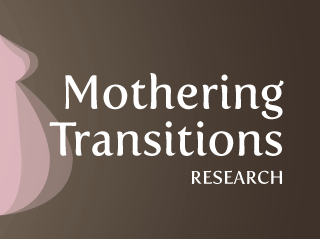Supporting the Mental Health of African Refugee Children and New Parents: Experiences of Zimbabwean and Sudanese Refugees
Objective: to examine the social support needs of African refugee new parents, and implications for support interventions that enhance the mental health of both children and parents. Specifically, the study seeks to identify the (1) support needs, informal and formal support resources, and access and barriers to support for Sudanese and Zimbabwean refugees who are first-time parents; (2) their experiences of loneliness, social isolation, and attendant mental health challenges requiring support; (3) culture-specific and intracultural variations in support-seeking and support needs among these new refugee parents; and, 4) preferences for relevant social support interventions for children and parents.
Research questions: (1) What are African refugees’ experiences coping concurrently with migration and first-time parenthood? (2) What are these African refugees’ experiences with loneliness, social isolation, and mental health challenges? (3) What are the formal and informal support resources accessed by refugee new parents? (4) What are the support needs of these refugee new parents? (5) What are the support-seeking strategies of refugee new parents? (6) What barriers do refugee new parents encounter when seeking support? (7) What support interventions do African refugee new parents prefer for coping with migration, new parenthood, and attendant mental health challenges? (8) What is the relationship among demographic (e.g., family structure, SES, gender, marital status, ethnic origin) and descriptive variables (social support, support-seeking coping, social isolation, loneliness) and mental health of refugee young children and parents? (9) What are the implications for services, programs, and policies?
Sample: Phase 1: 70 first-time mothers and fathers including lone parents from both Sudan (n=35) and Zimbabwe (n=35) who came to Canada in the past 2 to 9 years, who have a child under 12 months old, have education and age levels, and live in Edmonton. Phase 2: 30 service providers and policy influencers.
Methodology: Given the major gap in research focused on Sudanese and Zimbabwean refugees’ new parenthood, mental health, and social support, a pilot test is needed for interview schedules and quantitative measures. In Phase 1, refugee first-time parents will be interviewed individually (by peer interviewers) to elicit their perceptions of: experiences coping concurrently with migration and new parenthood (Research Question [RQ] 1), loneliness, social isolation, and mental health challenges (RQ2), formal and informal support resources (RQ3), support needs (R4), support-seeking strategies (RQ5), barriers encountered in seeking support (RQ6), and preferences for support interventions (RQ7). At the time of these individual interviews, a demographic questionnaire will be administered, together with quantitative standardized measures designed to assess 1) support types and sources, support needs, and satisfaction with support (Personal Resource Questionnaire), 2) coping, in particular support seeking (Proactive Coping Inventory), 3) loneliness and social isolation (UCLA Loneliness Scale), and 4) mental health of children and parent (Post Traumatic Stress Disorder Scale) (Ages and Stages Questionnaire & Motor and Social Development Scale). Peer interviewers will be matched to participants by gender and ethnicity, and trained. Following the individual interviews, four group interviews (group participants matched by gender and ethnicity) will be conducted with African refugees who are first-time parents (n=32). The key support needs and support intervention preferences identified in the individual interviews will be presented to participants. Feedback will be sought on intervention options identified in individual interviews including the desirable characteristics of support providers; support intervention format, frequency, and duration; and logistical issues (e.g., translation, childcare, transportation) that may influence feasibility, relevance, and accessibility of an intervention. The group interviews will be facilitated by investigators and peer interviewers. All interview guides and standardized measures will be translated into the participants’ first languages and then back-translated to ensure that the meaning of the translated documents are equivalent to the intended meaning of the original measure or interview guide. The translated interview guides and measures will then be pilot tested with four Zimbabwean and four Sudanese volunteers to determine accuracy and appropriateness. All peer interviewers will be fluent in predominant languages spoken by participants. In Phase 2, results from the individual and group interviews of refugee new parents will be presented to service providers from mainstream and immigrants/refugee-serving organizations and policymakers (n=30), and their input sought through group interviews on service, program, and policy implications.
